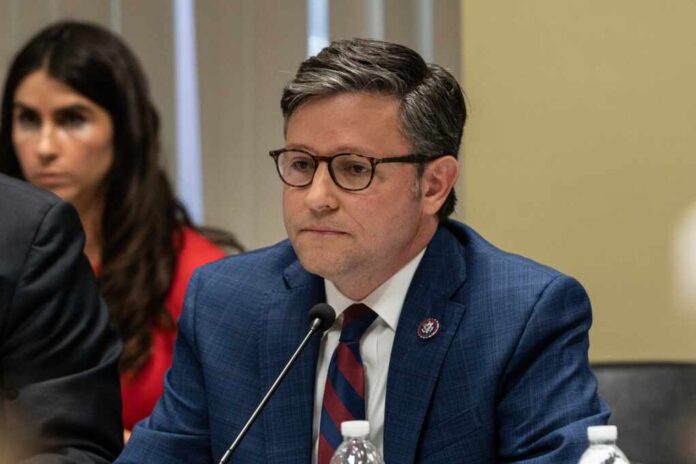
Following a meeting with President Joe Biden and congressional leaders, House Speaker Mike Johnson has committed himself to resolving the deadlock on border security and military funding, particularly concerning Ukraine and Israel. Emphasizing the urgency of addressing the border “catastrophe,” Johnson dismissed the potential of a comprehensive immigration bill before the meeting.
Representative Marjorie Taylor Greene (R-GA) threatened a move to oust Johnson if he supports a funding deal for Ukraine, stating, “I would introduce the motion to vacate myself,” during an interview on Wednesday.
Rep. Marjorie Taylor Greene tells me “I would introduce the motion to vacate myself” if Speaker Johnson passes funding to Ukraine.
— Andrew Solender (@AndrewSolender) January 17, 2024
Despite facing so much resistance from Johnson and House conservatives, Senate Republicans are planning to vote on legislation that combines funding for Ukraine and Israel with a border security plan. GOP leaders seem to view this as a unique opportunity to secure significant border concessions from Democrats in a divided government.
Acknowledging the challenge of garnering Democratic support in a unified government, Senate Minority Leader Mitch McConnell sees the current situation as a chance for a unique accomplishment. “This is a unique opportunity to accomplish something in divided government that wouldn’t be there under unified government,” McConnell stated before meeting with Biden.
Some conservatives, including Greene, argue for withholding government funding until the border crisis is addressed. Despite bipartisan agreement on a two-part continuing resolution for $1.66 trillion in spending over the weekend to avert a government shutdown, Greene believes Republicans can leverage their power to solve the border crisis by standing firm on funding issues.
“If Republicans had a spine, and if our conference stuck together, we have all the power that we need to solve the border crisis right now,” Greene asserted on Monday. “I think if we just refused to fund anything, and we stood our ground, we would come out winning that.”
The turbulent political landscape surrounding border security and military funding for Ukraine and Israel remains highly debatable. As these conservative leaders navigate the delicate balance between addressing immediate concerns and leveraging political power, we can see the complex dynamics within the Republican party and their cautious approach to critical funding decisions.

























